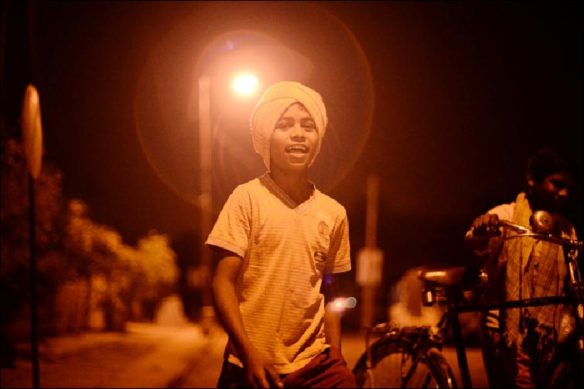Hawkers and vendors
From the vegetable vendor pushing his cart, to the cobbler, the coconut vendor, the flower seller outside places of worship or the tea seller, the general public depend on street vendors and hawkers for their daily needs and convenience. Urban areas in India started with Santhes or traditional street-side markets. Today however, these traditional and informal marketplaces are under threat. The Government wants to shut down street vending and instead support the growth of malls.
Our founders were engaged with street vendors even before the inception of the Concerned for Working Children as part of their trade union work with the informal and unorganised sector of labour. Now in a country where all cities are obsessed with being the next Singapore or Shanghai, in a country that has a growing mall culture, street vendors are increasingly being thought of as an unnecessary and a problematic burden on the city.
The truth however is very different. With increasing migration and urban poverty, the informal sources of income that street vending provides are very critical to the survival of migrants and the poor.
A wave of evictions
Recent years have seen massive evictions of vendors from all urban centres. In Bangalore, the BBMP (city government), the police and the Muzrai (department of charitable and religious endowments, also responsible for street vendors) have staged several evictions. In July of 2010, for example, more than 600 street vendors from Shivajinagar, Ulsoor and Gandhinagar were violently evicted from their place of work, without any prior notice, and their belongings were thrown away. These evictions have left thousands of families struggling for survival with absolutely no alternate source of income.
These actions are not just illegal and unconstitutional, but are also contrary to the National Policy on Urban Street Vendors, 2009 issued by the Government of India, which provides for the protection of livelihood of urban street vendors. In August 2009, the Honourable Prime Minister of India Dr. Manmohan Singh has also personally written to the Chief Ministers of all the states including Karnataka to enact a law based on this policy and protect the livelihood interests of street vendors. Since then, the Government of Karnataka has sat on this proposal without bothering to respond.
CWC opposes strongly against the moves of the local government in Bangalore to evacuate the street vendors in Bangalore thus denying their right to livelihood. The programme also advocates for implementing the National Policy for Street Vendors in the State Of Karnataka. Our aim is to ensure that street vending is protected and the vendors and their families are provided the dignity and security as entrepreneurs and citizens.
Read our comments on the National Policy on Urban Street Vendors.
Street Vendors Campaign
We worked with street vendors in Shivajinagar area to form a union to fight for the rights of street vendors. Formed in October 2010, the union is called the Beedi Vyaparigala Hakkottaya Andolana, or the Campaign for the Rights of Street Vendors. As part of the campaign, we made repeated requests and petitions to concerned officers in the BBMP and the police. However, the street vendors have not yet been able to get their right to livelihood back. Exercising the democratic right to demand a response, we protested at the BBMP office on Oct 21, 2010. The Mayor promised to speak to the commissioner and fix a date for discussions with the Andolana to discuss how street vendors could be accommodated on the pavements.
Read coverage of Beedi Vyaparigala Hakkottaya Andolana’s campaign in the Hindu, DNA or the Deccan Herald. Or read some press clippings from the campaign.
We continue to fight for the rights of street vendors on both the policy side as well as in the field.


